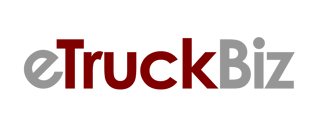Ground CSP's, generally, possess exceptional area knowledge for the areas they service. They can utilize this knowledge to plan routes and take into account all the intricacies of a particular area.
Now, however, CSP's are starting to see that the old process of developing static routes to cover a particular service area is going the way of the horse and buggy.
Routes now need to be planned dynamically. This means that with the transformation of stop characteristics (residential) along with an evolving FXG business model (heavy focus on eCommerce), route planning needs to change constantly.
In order to remain successful, today's CSP must adapt to this new demand as the business continues to change. The number of routes and the actual route "boarders" need to be engineered in such a way to be flexible based on work load characteristics.
Who's Planning Your Success?
Despite its importance, most transportation companies don't employ trained engineers to plan their routing. Typically, routing software sifts through relevant data points producing what it deems the most cost effective plan. The plan is then manipulated by people who know the geography, but are rarely trained as engineers.
Transportation volumes, adjusted for eCommerce are not as predictable as they used to be. Plus, transportation companies are challenged by unexpected events (i.e. pickups) that can be unknown variables at the beginning of each day. The overwhelming majority of transportation companies simply employ an experienced manager’s instincts to plan and optimize their routes. And this is despite enormous routing challenges.
Are we suggesting transportation companies should recruit and hire full-time engineers? No, that's not really practical. Should CSP's rely on software as substitutes for real engineers? Well, that's up to you. But here's a question: are you as profitable as you'd like to be? Is it only because your revenues don't cover your expenses? Maybe, but maybe not.
Three-Step Solution
What’s the answer? It’s a multi-part solution. First, if you want to be a profitable Contractor, stay in learning mode. An attitude that every vendor just wants to sell you something is untrue. The best Contractors understand that outside advice can help. Plus, they know that routing isn’t simply handled by software. Routing deserves your attention. It's worth your time. And by the way, the fact that you're reading a blog post about routing indicates your willingness to learn.
Second, you need to understand the difference between route planning and route optimization. We’ll dig deeper into this in future blog posts, but knowing the basics is crucial. Route planning at it’s most basic definition is the process of setting up a list of deliveries plus known pickup stops in an order that seemingly make sense.
Route planning software starts with points of origin, then maps out a path to multiple stops in the shortest order. It does not account for all of your territory’s nuances, nor does it minimize expenses. Your business cannot reach it’s optimal profitability via route planning.
Route optimization allows users to formulate routes based on more than distance. Advanced algorithms allow you to route your stops profitably if you'll also spend time using it. It’s not uncommon for people to use the terms interchangeably, but they’re very different programs.
A huge difference is that route optimization lets users and managers reschedule throughout the day. If a driver doesn't show up in the morning, or falls behind during the day, route planning would start all over from scratch. But adjustments and newly optimized routes are created immediately using route optimization. Contractors generally are familiar with optimization software, the real challenge is then optimizing your profitability.
The third part of the solution is integrating your route optimization into your profitability plan. If you’re simply using route optimization software to:
a.) track your drivers, and/or
b.) train drivers, and/or
c.) show them where to go next,
then you’re overlooking the biggest benefit of all. A profitability plan? Yes, it’s the key to being financially successful.
Don't confuse optimizing your routes with being profitable. Your routing can’t be accomplished without known street addresses. Similarly, your profitability can't be accomplished without a known financial number. Plus, you can't use Quickbooks to plan your profitability. It's another important part of a business owner's routine.
At eTruckBiz, our experts can integrate your routing and financial strategies. We'll help you reach your financial goals.
We are about to unveil a service that encompasses setting up your DRO correctly to plan for volume changes, and, matching these plans with appropriate scheduling of personnel. It's a very big deal!
Look for more information about this very soon!

